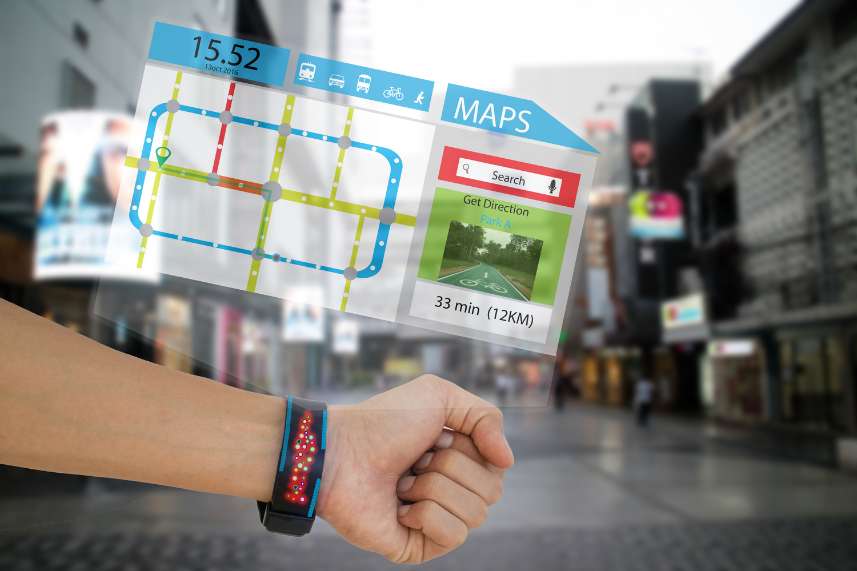The travel industry has witnessed a remarkable transformation since the beginning of this century. The introduction of artificial intelligence (AI) and machine learning (ML) has revolutionized the way companies operate in this sector. Today, almost every tourism-related company utilizes at least one AI-powered technology, and the industry is expected to grow at a compound annual growth rate (CAGR) of over 10% in the next 3 years.
Areas of implementation
From personalized recommendations to seamless customer service and advanced safety measures, AI continues to transform the industry, making travel more efficient, convenient, and enjoyable.
Artificial intelligence, along with complementary technologies such as natural language processing (NLP), big data analytics, and deep learning, has significantly enhanced the quality of the travel experience.
- Personalized Travel Recommendations: AI-powered algorithms analyze vast amounts of data, including customer preferences, browsing history, and social media interactions, to provide personalized travel recommendations. AI systems can suggest tailored itineraries, accommodation options, and activities, saving travelers valuable time and effort in planning their trips.
- Virtual Assistants for Seamless Customer Service: Chatbots equipped with AI and NLP capabilities have become an integral part of the travel industry’s customer service. These virtual assistants engage with customers in real time, addressing queries, providing travel information, and assisting with bookings. Chatbots offer 24/7 support, ensuring a seamless experience for travelers while reducing the burden on human customer service representatives.
- Enhanced Travel Booking Process: AI streamlines the travel booking process by automating various tasks. Intelligent algorithms can analyze historical data and customer behavior to predict optimal pricing, enabling travelers to find the best deals. AI-powered systems also handle complex itineraries and suggest alternative options in the event of disruptions, ensuring a smoother booking experience.
- Smart Travel Assistance: AI-powered travel assistants, accessible through smartphones or other devices, provide real-time information and guidance to travelers throughout their journeys. These assistants can offer weather updates, navigation directions, language translation, and local recommendations, enhancing the overall travel experience and ensuring convenience.
- Advanced Safety and Security Measures: AI plays a vital role in enhancing safety and security in the travel industry. Facial recognition technology, powered by AI, expedites airport check-ins, immigration processes, and baggage claim procedures, reducing waiting times and improving overall efficiency. They also analyze vast amounts of data to identify patterns and detect potential security threats, making travel safer for passengers.
- Intelligent Revenue Management: AI and ML algorithms enable travel companies to optimize their revenue management strategies. These systems analyze market trends, competitor pricing, and historical data to predict demand fluctuations and adjust pricing accordingly. By maximizing revenue and occupancy rates, AI-powered revenue management systems benefit both travel companies and customers.
Benefits of AI in the Travel Industry
Better Customer Experience: Customer satisfaction is paramount in the travel industry, and AI significantly contributes to improving the overall customer experience. Here’s how:
- Personalization: AI utilizes smart recommendations based on user preferences, streamlining the decision-making process and offering tailored suggestions that match individual tastes.
- Dynamic Pricing: AI-powered inventory tools enable real-time updates of service costs, allowing customers to access the best available travel deals at any given moment, both for personal and corporate travel.
- Sentiment Analysis: AI and machine learning algorithms aggregate data to detect consumer sentiment towards a brand. By monitoring brand satisfaction scores online, businesses can understand customer sentiment and address any issues promptly.
- Hospitality: AI optimizes various aspects of travel, enhancing hospitality services, such as personalized recommendations, automated check-ins, and tailored experiences.
- Customer Support: AI-enabled chatbots equipped with natural language processing (NLP) algorithms provide efficient and human-like customer support, improving response times and enhancing customer relationships.
- Simplified Baggage Handling: AI tools like BagsID leverage biometric data and computer vision to track and handle baggage operations. These tools reduce human error by accurately recognizing and tracking luggage throughout a journey, ensuring seamless baggage handling and minimizing lost or mishandled bags.
- Brand Relevance: Maintaining a strong brand identity and staying relevant in the social media era is crucial. AI aids in monitoring and analyzing consumer sentiment towards a brand, allowing businesses to respond effectively. Sentiment analysis tools analyze social media mentions and provide insights into customer opinions, helping companies gauge their brand perception accurately.

About AlgoNew
At AlgoNew, we add intelligence to your digital interactions so you can deliver a personalized and efficient experience to your customers. How do we do it? Through a combination of intelligent decision management, natural language processing, and advanced analytics.
We use algorithms to help you make informed decisions in real-time and improve the efficiency of your processes. In other words, we make sure that every action you take is based on relevant data and artificial intelligence, resulting in faster and more accurate decision-making.
Conversation management, on the other hand, refers to how you interact with your customers through digital platforms such as chatbots or virtual assistants. We use natural language processing technology to understand and respond to customer requests effectively and naturally. This means your customers can interact with digital systems in the same way they would with a human, which enhances the user experience.
Finally, we use advanced data analytics to gain valuable insights from your digital interactions. We analyze the data generated from your interactions to identify patterns and trends that can help you improve your business. This can include things like identifying common problems your customers have and how to solve them efficiently or identifying areas for improvement in your business processes.
This combination of intelligence that we offer at AlgoNew can help you significantly improve your digital interactions with customers. It helps you make informed, data-driven decisions, interact with them effectively and naturally, and gain valuable insights into your business processes.
All leads to a better customer experience and greater business efficiency!





